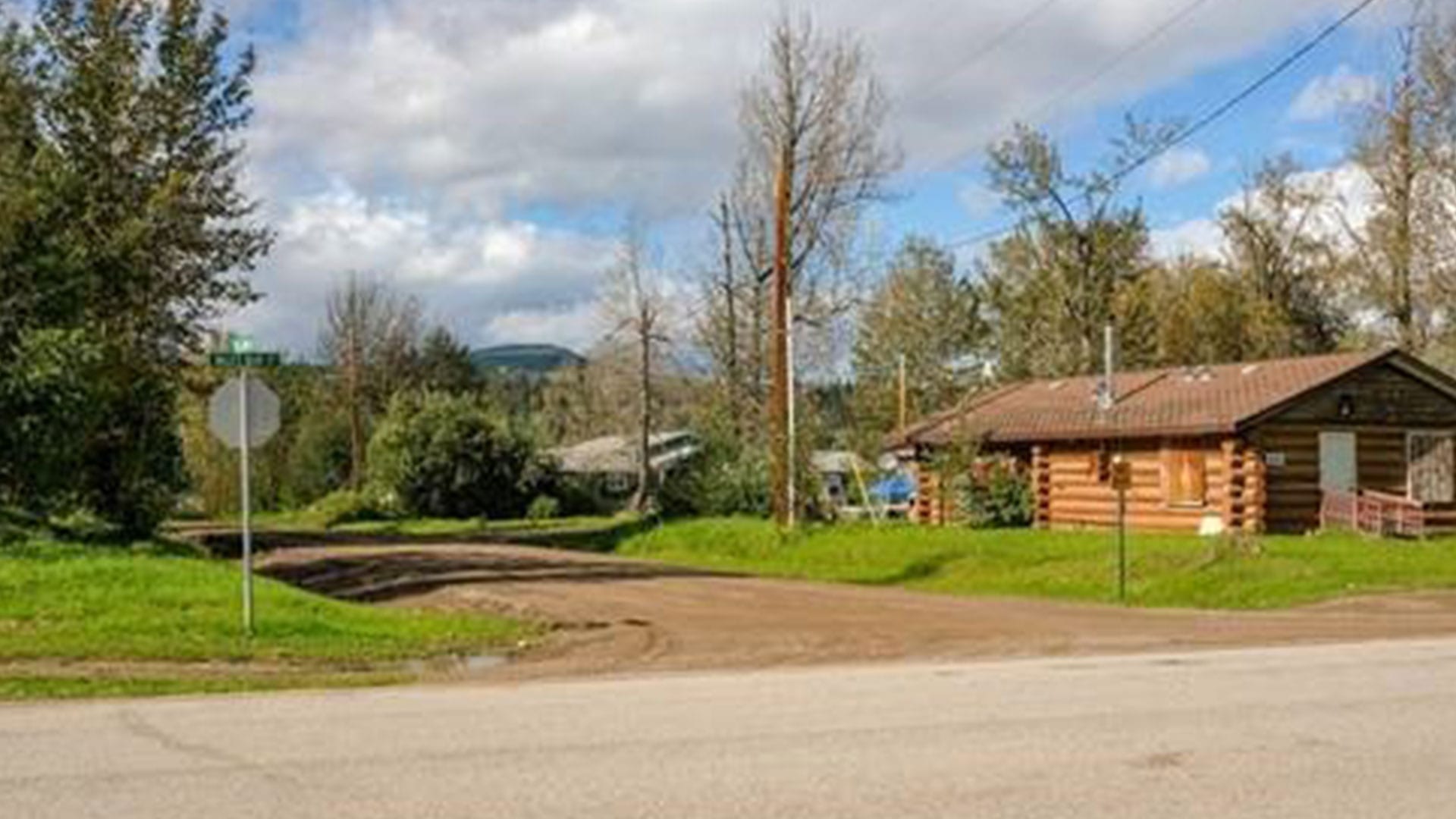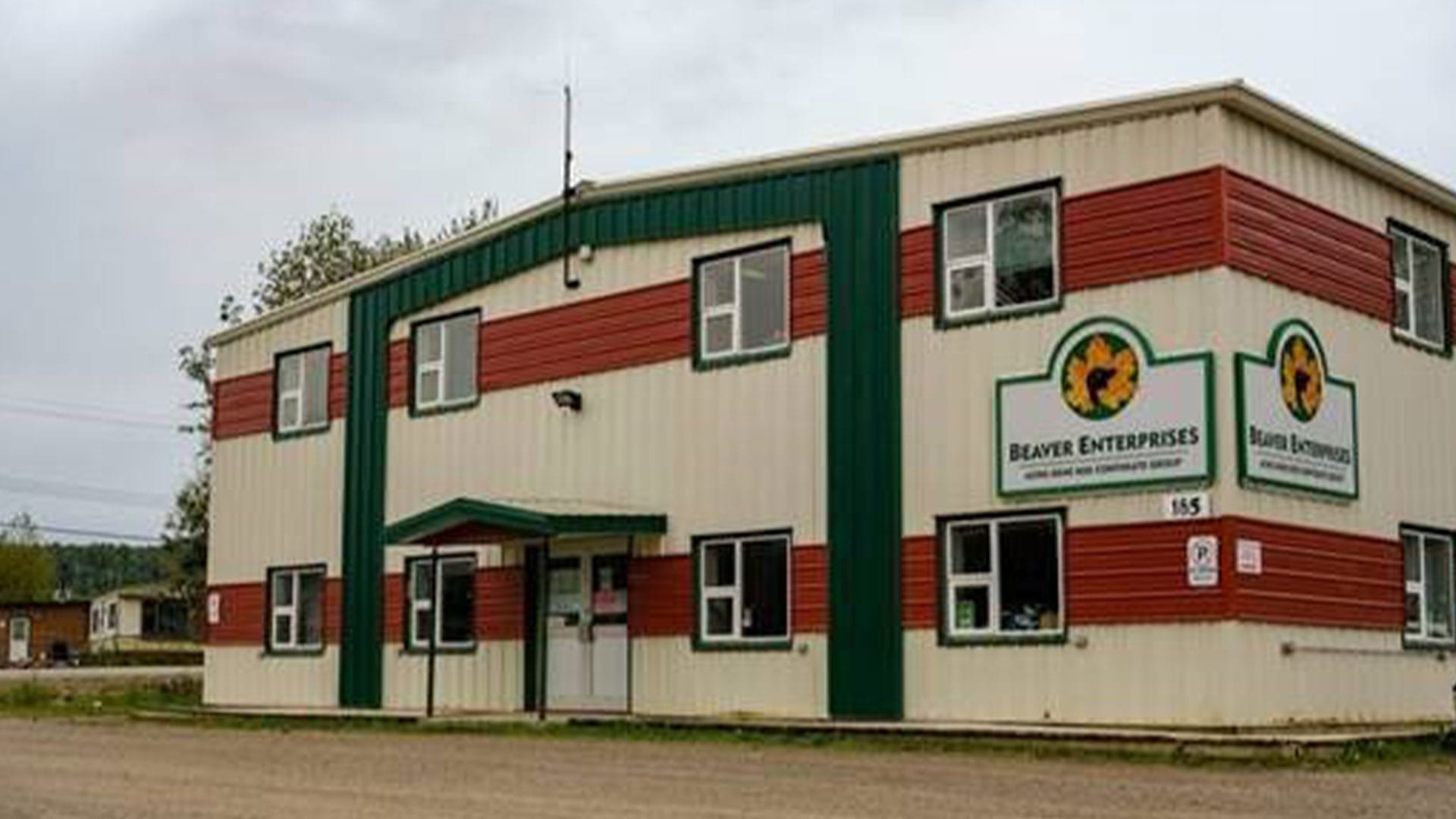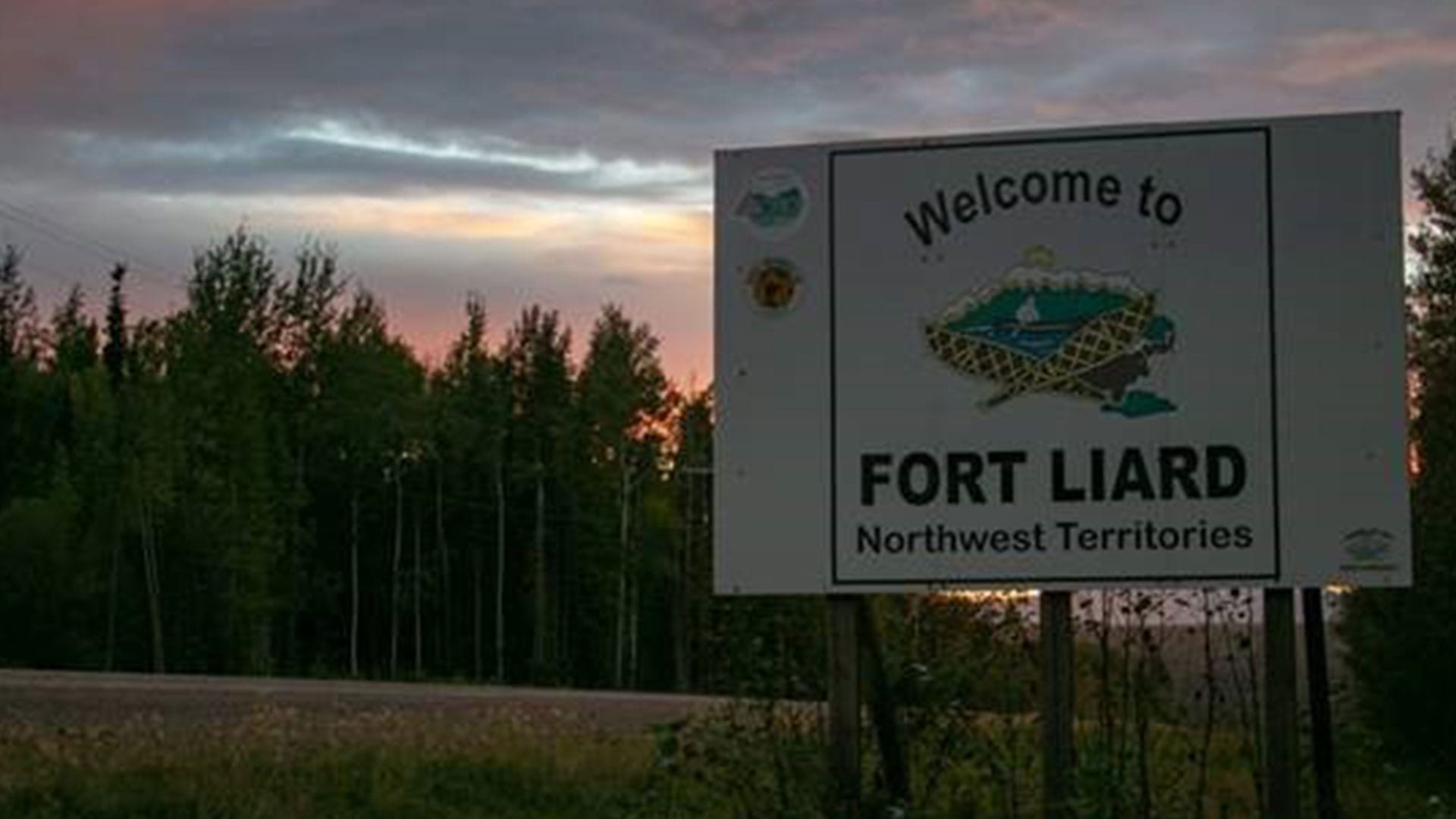Floyd Bertrand leafs through a stack documents on his dining room table – correspondence between himself and various levels of government all dealing with complaints about his chief and band council.
“Chief and council and the current administration of the band, they have to be held accountable…. for making major decisions without membership support,”
Bertrand, is the former chief of Acho Dene Koe First Nation (ADKFN) who served from 2002 to 2005.
He said communication between council, band staff and regular members has been strained over a widely anticipated election, a land claim process and how COVID-19 relief money is being spent.
Confusion and Complexity over Election

ADKFN is home to the Deh Gah Gotie Dene whose traditional territory encompasses the southwestern tip of the Northwest Territories and extends into the northeastern part of British Columbia and the southeastern portion of the Yukon.
The band office is located in the N.W.T. in the community of Echaot’ıe Kųę, meaning Place of the people from the land of giants, in Dene Zhatıé and is also known as present day Fort Liard.
The current chief, Gene Hope and six councillors were elected in May 2017.
According to Bertrand, the end of the term should have been May 2019, but council stayed on longer, claiming the First Nation was under a “custom election code.”
Since then, for the last 16 months, Bertrand and his family have been appealing to the election officers assigned to the First Nation to have an election.
At an August 2019 membership meeting, Floyd, his wife Patricia Bertrand and band member Cathy Kotchea went around and gathered signatures on a petition which called for an immediate election.
The petition cited the current chief and had overstayed their mandate by several months and not been transparent with the status of a land claim. It received approximately 60 signatures from band members.
But the petition did not spark an election.

Joanne Deneron, who co-owns the general store and motel and who has served as a board of director for the ADKFN business entity, now calls herself a concerned band member living in Fort Liard.
She was at that meeting when the petition went around.
She has also voiced her opinions on the current situation of her band.
Deneron argued the current band council is operating under a custom election codes written in 2007 that has no legal standing.
“I was on band council when they tried to ratified an election code but it it had to be ratifies by 60 per cent of the community and it never made it to the third reading. It was done and over with,” Deneron said.
First Nations without custom election codes, are held to the terms set by the Indian Act, meaning an election must take place every two years.
Deneron and Bertrand are not alone in their belief that the First Nation is without an election code.
An email dated Oct. 11, 2018 by Boyd Clark, ADKFN band manager to ADKFN lawyers also stated Acho Dene Koe First Nation “does not have an election code and therefore fall to the language of the Indian Act.”
ADKFN scheduled nominations for chief and council in April 2020 for an election on June 8, 2020.
But by the end of April, the band council decided to postpone the election until November citing concerns over the COVID-19 pandemic.
Bertrand said he immediately was in correspondence with Tony Devlin, N.W.T. elections officer and Garth Wallbridge, who served as ADKFN lawyer.
He requested that members press forward with an outdoor election while practicing COVID-19 physical distancing rules and restrictions.
In response, on Aug. 26, 2020 Garth Wallbridge wrote back and said “As to the application of that standard, it must be kept in mind that elected Band Councilors are leaders in their community’s democratic process. They are chosen by Band members and entrusted to look after the interests of the Band and its members.
“Band Councilors are expected to deal with all matters that affect the interest or welfare of the Band and its members – matters that may be politically charged and polarizing.”
On Sept. 20, ADKFN issued a statement regarding the election.
“The current chief and council has identified the potential spread of covid-19 as a serious and well-founded concern,” and “that generally, membership supports a postponement of the election.”
The federal legislation employed by the First Nation permits leaders to continue in their roles for up to an extra six months, and allows for another potential six-month extension.
While there is no set date for when ADKFN will hold an election, the exact date of the postponed election will need to be announced 30 days before the election takes place in May 2021.
RCMP Involvement in membership meetings
According to Bertrand, subsequently following the circulation of the petition for a new chief and council, membership meetings held in October 2019, had some new guests in attendance.
“The chief walked in and was escorted by two police officers. And their lawyer was there. That lawyer did all the talking and was explaining the process of an election and membership calling for an election,” Bertrand said.
APTN was told during that meeting, Patricia Bertrand, Floyd’s wife, directed questions to the chief.
She said she was cut short by an RCMP officer who stood up, told her to be quiet and that she wasn’t allowed to speak.
A public complaint was filed against RCMP G Division.
The complaint questioned why RCMP were present for meetings that had no history of violence.
“Members may and will be invited to future Band membership meetings. This is at the request of a concerned party,” said the RCMP in response.
The letter from the RCMP didn’t state who the concerned party was.
Communications a challenge for members
APTN has made several requests to chief and councillors for an interview. This included a Sept. 18 call where the chief was in the office according to the executive assistant, but did not answer the phone.
The band office reopened by appointment only on Sept. 8.
Steven Steeves, a band member also said he feels left in the dark with the First Nation’s current affairs.
“I came home from working out on the highways because nominations were supposed to open on Sept 25. I don’t know why the chief and councillors keep putting it off. I am going to try to confront a few councillors on it, but so far they haven’t wanted to talk,” Steeves said.
Steeves told APTN he plans run on council the next time around.
“Communication would be the key and I think translators are needed to go and explain things door to door. The next council needs to work on a settling a proper custom election code, so people living outside of Fort Liard can vote,” Steeves said.
In the early 2000s Steeves was a band council and was the oil and gas liaison.
“Back then we had a lands office. Now there is no more oil and gas way of getting our product to market. We need to get our land claim done to use the land,” he said.

Band staff operating out of community and down south
Bertrand said he has questioned the success of departments whose staff are not from Fort Liard and reside in southern B.C.
This includes employees in community support programs, lands and resources and band management.
“Until 2017, all the band manager stuff was done in house. All the payroll, handling the band’s finances, programs and proposals and lands and resources in house- they were all First Nation’s people local people working in those jobs,” Bertrand said.
On several occasions APTN News attempted to contact Clark – and asked the ADKFN band executive to let him know APTN was interested in talking.
Clark holds the positions of Consultant- Operations Manager, Advisor of Operations and Governance and Advisor (Acting Band Manager) (Contracted) for ADKFN.
Deneron, who served as a board of director for the ADKFN business entity for years said she does not support employment opportunities in her community being outsourced to non-Indigenous workers living in the south.
“Boyd Clark did work for the community at one time and he was found out to have a criminal past and he was released from his position. When the new chief and council came in they knew of that, but still went and hired him anyways,” Deneron said.
According to Regina Police Service, Boyd Clark was charged after he defrauded the Saskatchewan Soccer Association of almost $80,000.
According to media reports, Clark was convicted in 2012 and was sentenced to six months in jail and 18 months probation.
Questions over land claims
In 2014, ADKFN signed an Agreement in Principle (AIP) to negotiate self government.
Betrand said it came as a shock when chief and council announced a new direction for the claim in 2019.
The council had partnered with Havlik Consulting Group, a legal firm from Victoria who specializes in Specific Claims development for First Nations land claim negotiations.
“At a membership meeting, their (chief and council) lawyer (Havlik Consulting) was there and was saying ‘well a specific claims kind of bring you a lot of money and we are going to make this a reserve.’ Members such as myself spoke out and said we already signed on to an agreement in principal with our own land selection and we supported that by signing a petition why are you suddenly going to a specific claim,” he said.
On May 21, 2019, Hope penned a letter addressed to the Carolyn Bennett, Minister of Crown-Indigenous Relations and Northern Affairs asking to discuss Treaty negotiations with the federal and territorial government
APTN reached out to Havlik Consulting Group to discuss the status of the specific claim but was unable to receive a comment before this story was published.
Posts on Social Media
For Deneron, communication between leadership and members hit a breaking point during the COVID-19 pandemic.
“You can tell by some of the posts the chief puts on social media he’s angry at the people and not saying very nice things about them. Like what’s wrong with you people you should be happy you got these groceries and gas. What more do you want,” Dereron said.
Bertrand noted that using social media to communicate band finances and COVID-19 funding has left more questions than answers for membership.
He points to a July 6 post on the community’s Facebook post by Hope who wrote, “got $50k from the (territorial) government for Covid and it was all spent on members. We added extra funds from devolution royalty payments. If you multiply an average of $300 per member by 706 members that’s $211,800. There was a bit more provided from the government which helped cover the cost of giving cheques to members who live elsewhere and PO’s given for gas and groceries.”
Bertrand said the amount received by the band according to Hope’s Facebook post does not align with what ADKFN publicly told membership in June which reported that it received $150,000 from the territorial government and $520,000 from the federal government under the Emergency Measures Response Plan which totals $670,000.
“Overall, there’s a big discrepancy with the two statements. There’s a big difference of over $400k,” said Bertrand.
The band responded on Facebook saying “families received food and supplies which came from all the sources of Covid funds and members living outside of Fort Liard also received support. There was also money given to the hamlet for their emergency response plan, money for education support, elders and medical assistance support to help people during Covid,” said the post.
“A complete financial statement will be provided for the members once all accounting has been finalized.”
The band also noted that the Hamlet of Fort Liard was given money for their emergency response plan, education support, Elders and medical assistance support.











